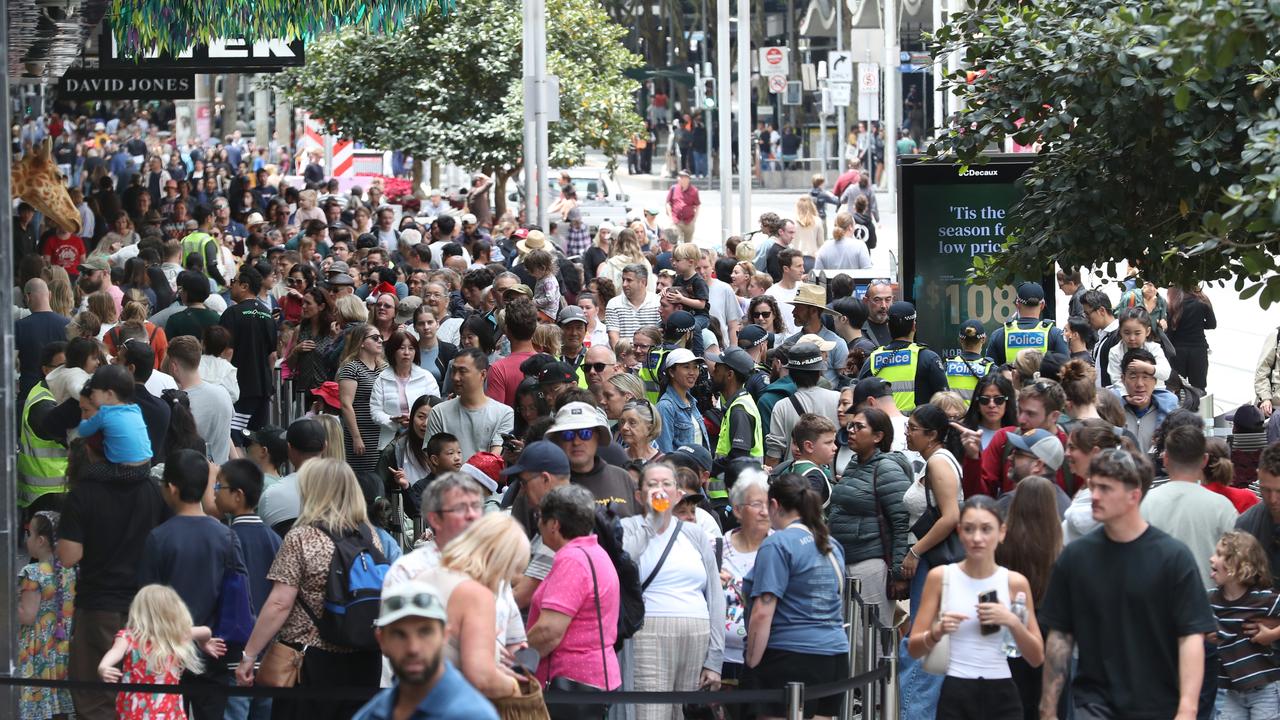How to ease the impending pain of the ‘mortgage cliff’
Nearly 900,000 Aussies could be in for bill shock when their cheap pandemic fixed-rate home loan expires by the end of the year.

Interest Rates
Don't miss out on the headlines from Interest Rates. Followed categories will be added to My News.
Hundreds of thousands of Australian homeowners breathed a sign of relief on Tuesday when the Reserve Bank (RBA) opted not to slug households with an 11th consecutive interest rate rise.
The decision will give those heading for the “mortgage cliff” time to get their finances in order before they cop the 10 previous rate rises all at once.
RBA data shows about 880,000 borrowers, who took advantage of record-low fixed-rate home loans during the Covid pandemic, will have their fixed-rate terms expire by the end of 2023.
The looming expiry means their loans will roll over to variable products and be subject to all 10 previous rate rises effectively all at once.

RateCity.com.au research director Sally Tindall is urging those who know they’ll be affected to formulate a strategy to soften the blow.
“If you’re on a fixed rate, whatever you do, don’t do nothing,” she said.
“Banks typically roll customers on to their revert rate, which are usually horribly uncompetitive.
“Diarise the end date of your loan and start comparing your options at least two months out. That could be haggling with your current bank or switching to a new lender willing to offer you a better deal.
“Refinancing can help lower the size of the cliff, but some people may find it’s an option they can’t pull out of their back pocket because they can’t pass the new bank’s stress test at much higher rates.
“People in mortgage prison shouldn’t just throw their hands in the air. Your options might be limited but that doesn’t mean you should throw the towel in completely – there’s nothing stopping you from asking your own bank for a better deal.”
MD Resolve Finance managing director Don Crellin has similar advice.
“Many lenders will be happy to work with a broker to negotiate a more competitive go-to rate or help them to shop around for new lenders,” he said.

“The difference in a go-to rate versus a negotiated rate can equate to hundreds of dollars a month.
“It's very evident that this will make a huge difference to most homeowners.”
MD Resolve conducted a survey of 1000 mortgage holders which found that 48 per cent of respondents would find themselves in financial distress if their mortgage repayments increased by up to $1000 – forcing them to consider selling their home.
RateCity’s own modelling shows someone who borrowed $500,000 in July 2021 on a two-year fixed-term rate of 1.94 per cent, currently paying $2105 per month, would end up paying $3469 per month if they did nothing by the time their fixed rate expired.
The increase would cost an extra $1365 per month.
However, if the same person haggles with their existing bank and gets their rate down from 7.18 to 6 per cent, then they could only have to pay an extra $1028 per month.
And through refinancing to a bank offering 5.25 per cent they could only have to pay an extra $821 per month – well below MD Resolve’s threshold for mortgage stress.
The pause in the cash rate, which is set to remain on 3.6 per cent for April, is based on the release of positive data relied on by the RBA.
The Australian Bureau of Statistics released optimistic jobs data, plateauing retail figures, and easing inflation prior to the interest rate decision.

Bill Gremos, who runs online “homewares supercentre” HomeMakerCentral, said the retail figures clearly showed households were still struggling.
“The impact on households of rising energy costs, higher grocery bills, high rents and mortgages even, fuel at over $2.30 per litre at the moment, is making life very difficult for many,” Mr Gremos said.
“For retailers there’s no doubt that it’s a challenging time at the moment, but those focused on providing an excellent customer experience and exceptional value for money will be best placed to achieve good outcomes in the current circumstances.”
The RBA board will meet again on May 2 to make the next decision on interest rates.
More Coverage
Originally published as How to ease the impending pain of the ‘mortgage cliff’




